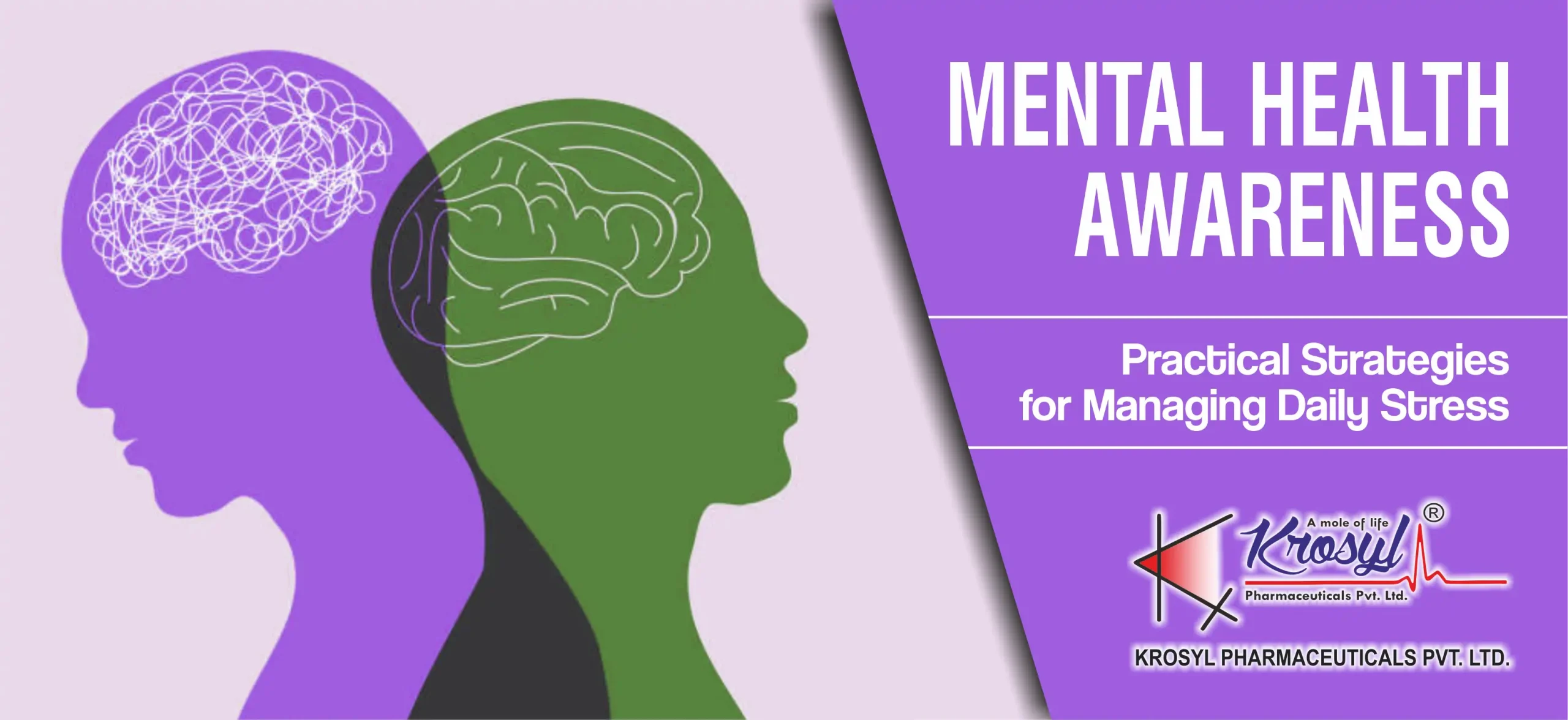
Introduction:
Welcome to Mental Health blog, where we’re committed to unraveling the threads of mental well-being. Today, we’re diving into the tumultuous waters of daily stress—the relentless force that often threatens to capsize our mental equilibrium. But fear not! In this post, we’ll explore practical strategies to help you navigate life’s rapids and emerge stronger on the other side.
Mental disorders persist as a major global contributor to disability, showing no signs of reduction since 1990. Amid the ongoing challenges posed by the COVID-19 pandemic, conflicts, and violence, prioritizing the assessment of their impact on mental health, particularly in the years from 2022 onward, is crucial. Understanding these dynamics is pivotal for nations to tailor and enhance their mental health responses to meet the evolving needs of their populations.
During these times, prioritizing your own and your family’s mental health is of utmost importance. Taking proactive steps to foster well-being, open communication, and mutual support can contribute to a more resilient and harmonious family environment. Remember, mental health matters, and investing time and care in it is a crucial aspect of overall wellness.
Understanding Stress:
Before we jump into the strategies, let’s briefly explore what stress is and why it’s a ubiquitous part of our lives. Stress, in moderation, is a natural response to challenges, but chronic stress can have detrimental effects on our mental and physical health.
Here are some easy , at Home strategies for Managing Daily Stress:
1. Mindfulness Meditation:
Why: Cultivate a present-moment awareness to break the cycle of stress.
How: Start with short sessions; online services can also help to calm your mind.
2. Establishing Boundaries:
Why: Protect your mental space and prevent burnout.
How: Clearly communicate your limits at work and in personal relationships.
3. Physical Activity:
Why: Releases endorphins, the body’s natural stress relievers.
How: Find an activity you enjoy, whether it’s yoga, jogging, or dancing.
4. Journaling:
Why: Externalize your stressors, gain clarity on your feelings.
How: Write about your day, your emotions, and any patterns you notice.
5. Connect with Nature:
Why: Nature has a calming effect on the mind.
How: Take short walks, sit in a park, or bring indoor plants into your living space.
6. Quality Sleep:
Why: Lack of sleep intensifies stress.
How: Establish a bedtime routine, limit screen time before sleep.
7. Practice Gratitude:
Why: Shifts focus from stressors to positive aspects of life.
How: Keep a gratitude journal, noting three things you’re thankful for daily.
Conclusion:
Life’s currents may be strong, but armed with these strategies, you can steer your mental ship through the storm. Experiment with these techniques, find what works for you, and remember that it’s okay to seek professional support if needed. Stress is a part of life, but with the right tools, you can navigate its challenges with resilience and grace.
